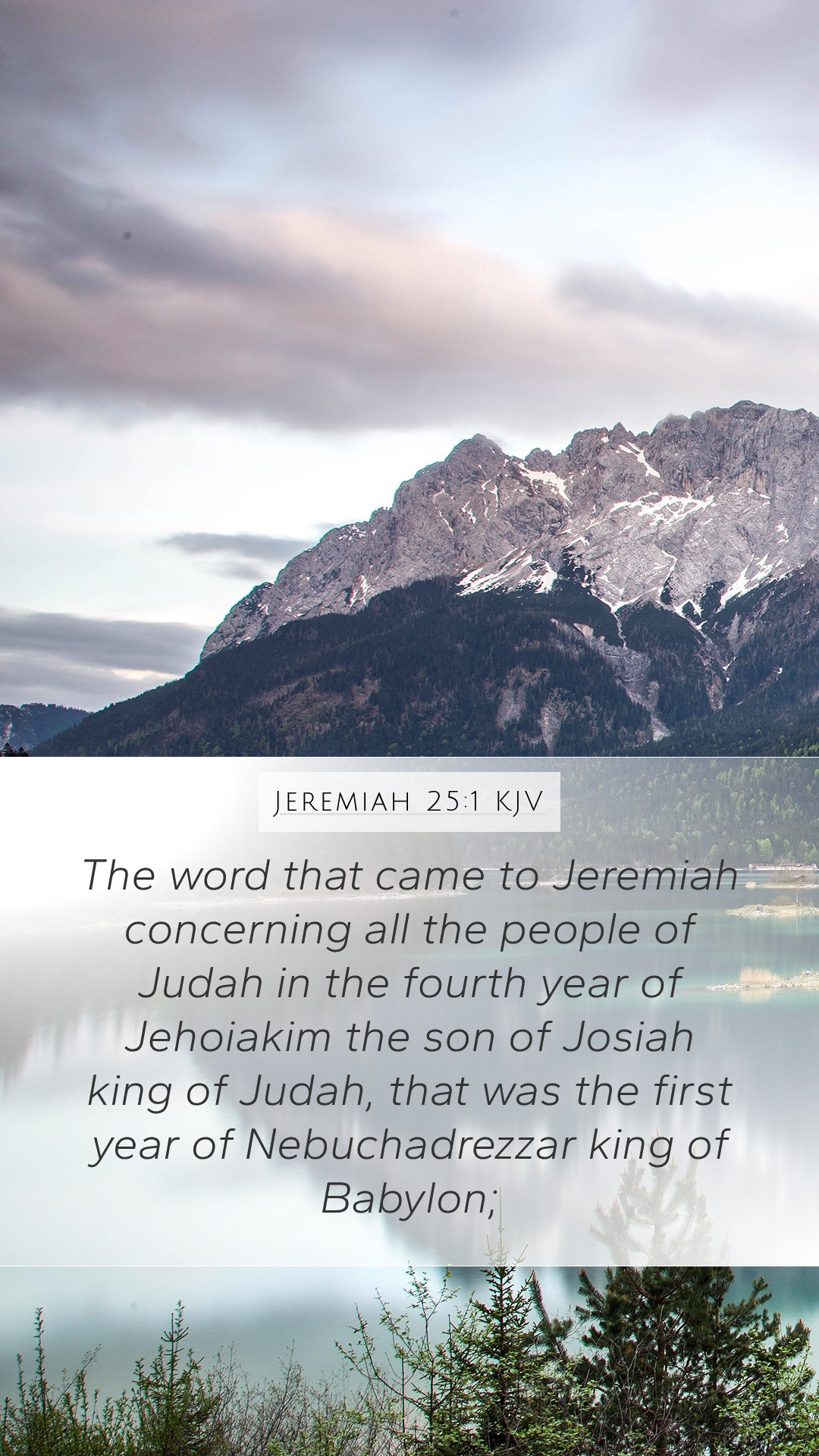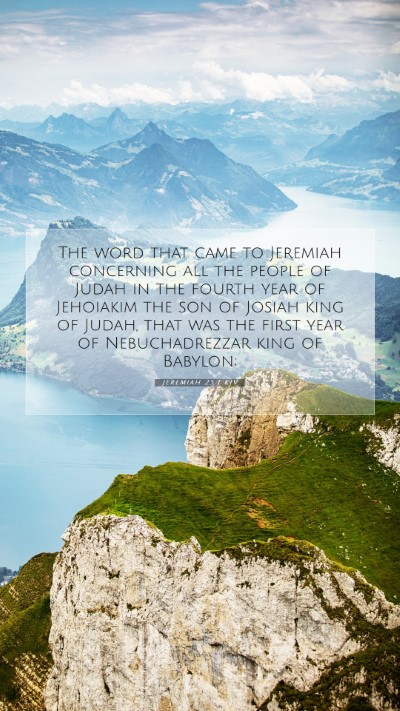Understanding Jeremiah 25:1
Jeremiah 25:1 states:
"The word that came to Jeremiah concerning all the people of Judah in the fourth year of Jehoiakim the son of Josiah, king of Judah, which was the first year of Nebuchadnezzar king of Babylon."
Summary and Context
This verse introduces a significant prophetic message delivered by Jeremiah during a critical period in Judah's history. It marks the beginning of a series of prophecies concerning the kingdom of Judah and its impending doom due to their continual disobedience to God.
Meaning and Interpretation
In this passage, we see several layers of meaning that can be unraveled through careful biblical exegesis. Let's explore key insights from public domain commentaries.
-
Historical Context:
Matthew Henry emphasizes the importance of situating this verse within its historical framework. Jeremiah delivers this message in the fourth year of Jehoiakim, a time when the kingdom of Judah was in a state of moral and spiritual decline.
-
Divine Communication:
Albert Barnes highlights that the phrase "the word that came to Jeremiah" signifies that the message is of divine origin. This underscores the prophetic nature of Jeremiah's role and God's active engagement with His people.
-
Judgment and Prophecy:
Adam Clarke notes that this verse sets the stage for a series of warnings about judgment. It indicates that God would use Babylon, under Nebuchadnezzar, as an instrument of His judgment against Judah, thereby showcasing God's sovereignty over nations.
Key Themes
Several profound themes emerge from this passage:
- The Sovereignty of God: God's control over historical events and nations is a central theme, reflecting His authority and ability to fulfill His purposes.
- Call to Repentance: The warning serves as a beckoning for the people of Judah to turn back to God, aligning with the overarching message of the prophets.
- The Role of a Prophet: Jeremiah’s prophetic role points to the necessity of God’s messengers who proclaim truth, often in the face of opposition.
Cross References
To gain further insights, consider these related verses:
- Jeremiah 1:10: Highlights Jeremiah's prophetic commission.
- 2 Kings 24:1: Provides historical context regarding Jehoiakim and Nebuchadnezzar.
- Isaiah 13:1: Discusses the burden against Babylon, framing the broader narrative.
Application to Daily Life
Understanding Jeremiah 25:1 involves more than historical comprehension; it serves as a powerful reminder of our need for vigilance and responsiveness to God's words. For contemporary believers, this passage encourages:
- Ongoing Bible study insights—engaging with Scripture to discern God's voice.
- Applying the lessons from history to avoid spiritual complacency.
- Emphasizing the importance of prophetic voices today and the role of local spiritual leaders.
Conclusion
The analysis of Jeremiah 25:1 unearths critical truths about God's character and human responsiveness. As seen in the commentaries of Henry, Barnes, and Clarke, the intertwining of prophecy, judgment, and the call to repentance in this verse remains applicable across generations.
This exploration serves as a vital part of deeper Bible study resources and will aid those seeking Bible verse explanations and Bible verse interpretations. It illustrates the timeless importance of understanding Scripture within its historical and spiritual context.


